Winter Skincare
7 years ago by
Baby, it’s cold outside. In New York City, we’ve already had an unexpected first snow storm! And in a few weeks, we will definitely be in the thick of things. Oddly, despite being in the beauty industry for years, I still have not mastered the perfect winter skincare routine.
I still find myself feeling a little too dry, too greasy or too something—all that to say, I’ve got work to do.
To make matters a bit more complicated, I recently found an eczema patch on my right calf that I brushed off for weeks as razor burn. Eeek!
The timing of this assignment was perfect, selfishly I could get my sh*t together while helping Atelier Doré readers do the same. I frantically hit up some of my favorite derms and asked them everything I could to ensure that together, “we” have successful winter skin. Below are a few key gems (in no particular order) they shared with me.
Rule No. 1: Start Prepping Now
If you’re like me, you don’t actually worry about things until they happen. Miami-based dermatologist, Dr. Roberta Del Campo, reminds me that mistake number one is forgetting that hydration is key year-round. “Many people wait until their skin is dry and irritated to start increasing their moisturizing regimen,” she explains. In her words, “start early and reapply often to keep your skin healthy and protected. Also, using a soap-free, gentle face and body wash. And fragrance-free detergent can make a world of a difference!”
“Living in the seasonal weather of New York City, the needs of my skin fluctuate throughout the year,” Dr. Melissa Doft shared with me. “I often will use a thicker moisturizer in the winter, complete with ceramides which have been shown to decrease eczema. I love cleansing balms (like Eve Lom), applying the thick layer in the winter and then a warm washcloth to remove it. In the winter, I often try to correct any damage from the summer sun by incorporating a brightening into my regimen, like La Prairie’s lightening series.”
Rule No. 2: Shorten Your Showers
Ok, guilty as charged. I’ve said this before, there’s nothing more that I love than a long-winded rinse at the end of the day. But New York City-dermatologist, Dr. Marnie Nussbaum recommends to cut these down to 5 minutes maximum. “Use lukewarm water, never hot. Long, hot showers sap the skin of its natural oils. Also, pat dry after a shower and immediately apply a moisturizer. Plus, try and moisturize twice daily.”
Rule No. 3: Rethink Your Outfit Choses
Sorry fashionistas, this subsection is specifically for you. Many of your winter faves actually aren’t that great for your overall skin health. “In winter months, humidity tends to drop. With less humidity, the skin becomes drier, leading to cracked-looking skin,” shares Dr. Del Campo. “This can lead to itching and a higher risk of infections, as well as other allergens entering the skin. To keep us warm, we tend to reach for clothing containing synthetic materials that can be quite irritating on the skin.” I recommend choosing natural fibers, such as wool, cotton (layers!), and cashmere.
Rule 4: Analyze Your Ingredient List
If you are questioning which ingredients to turn to, Dr. Nussbaum has a few suggestions: “Glycolic acid is a great ingredient to exfoliate dead skin cells. Hyaluronic acid is great for moisturizing. Green tea is always helpful in decreasing any irritation/inflammation and acts as an antioxidant. Resveratrol can also act as a potent antioxidant helpful at night for anti-aging purposes.”
“I always look for ceramides,” explains Dr. Roberta Del Campo. “These are a family of lipids that are naturally in your skin and help to hold onto moisture, keeping the skin barrier healthy and strong.”
Dr. Doft reminds us that hyaluronic acid will absorb up to 1000 times its weight in water. “Using low molecular weight hyaluronic acids will allow them to enter into your skin where they can absorb water giving you a more radiant, fresher appearance,” she explains. “I also love ceramides which have been shown to help against eczema.”
Rule No. 5: Pick Your Oils (and Butters) Wisely
Facial oils and balms are an absolute favorite of One Love Organics founder, Suzanne LeRoux. “They are concentrated for fast results and they last a long time with no fillers or extra ingredients that can irritate sensitive skin like mine,” And always, always make sure that your skin is clean and very damp before applying oils or they will just sit on the surface of your skin.” Try her Botanical E Youth Preservation Serum for a hydration boost for AM or PM.
I too am personally a HUGE fan of body oils (Bio-Oil is an old standby for body) but unfortunately, not all skin types love them. “For those that are acne prone, it is important to avoid oils that can be comedogenic, meaning they block the pores. This can lead to breakouts on your face and other areas of your body,” shares Dr. Del Campo.
For those who love the extra oomph of a body butter look for versions that contain oils, such as Argan oil, vitamin E oil and olive oil for example. “These are much lighter than those that contain dimethicone or large amounts of shea butter,” Dr. Del Campo adds. My personal favorite is Shey by Menaye’s Praline Body Cream, a nourishing blend that feels 100% luxurious.
Rule No. 6: Exfoliate in Moderation
It’s tempting to scrub away the problem, however it often has more drawbacks than benefits if you overdo it. “I usually limit exfoliation to once weekly for the face and twice weekly for the body as over-exfoliation can result in micro-tears in the skin and inflammation,” advises Dr. Nussbaum.
But that doesn’t mean you should skip it all together. “Dry cells are less efficient than healthy cells and thus turn over less frequently so it is important to exfoliate during the winter so that your skin does not appear dull,” explains Dr. Doft.
Rule No. 7: Keep Drinking Water
According to Dr. Del Campo nothing replaces drinking water, since this is important for your internal organs to function properly. “However, I absolutely recommend humidifiers during winter months when the humidity drops,” she shares. “This not only helps with dry skin, but it helps prevent cracked lips, nose bleeds and dry eyes, which are all common in cold weather.”
LeRoux learns towards hot herbal tea, “It will warm you up and it still counts towards your water intake if it is caffeine free,” she adds. Speaking of lips—don’t neglect them either. Try to use a lip balm frequently throughout the day as the lips tend to lose hydration quickly. Right now, I’m digging FRESH Sugar Advanced Therapy Lip Balm or Nyakio Baobab Lip Balm.
Rule No. 8: You Still Have to Wear Sunscreen
Seems like a no-brainer but alas, a tip all dermatologists remind us about over and over. “Make sure to protect your face with a scarf and your hands with gloves,” Dr. Melissa Doft. adds in. “Remember that you can still get sun burn during the winter months so it is important to use SPF when outside or skiing.
Dr. Nussbaum highly recommends ELTA UV Clear “which is both moisturizing and has adequate UV protection” to combat the damaging rays shining down.
Plus, a quick note about hair…
“Our hair tends to become more brittle due to lack of moisture in winter months—this can lead to split ends and hair breakage,” Dr. Del Campo reminds us. “A light hair oil can be beneficial to combat the effects of cold weather!” I’ve been using Kreyol Essence Haitian Moringa Oil on my bleached hair and seen a major difference.

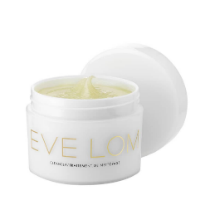
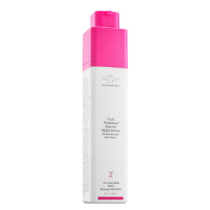
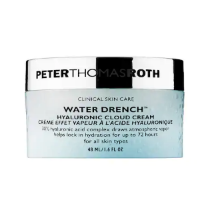
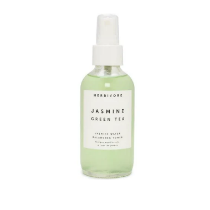
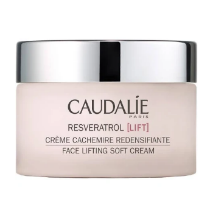
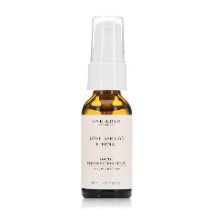
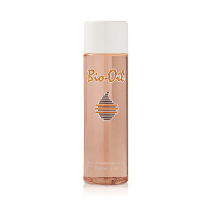
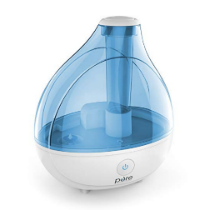

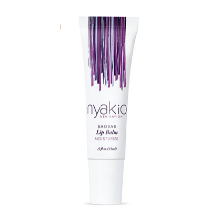
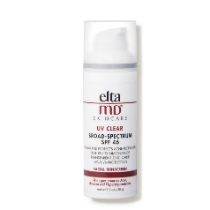
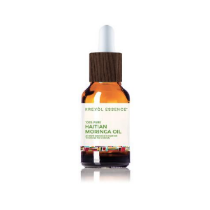


























































Hyaluronic acid is amazing, but not everyone can use it in the winter. It does retain 1000 times its weight in water, but it isn’t magic. That moisture has to come from somewhere. If the humidity of your environment is high enough, it pulls moisture from the air to your skin. But if you use it in low humidity conditions, like cold winter air outdoors and indoor heating, it’s going to be pulling that moisture *from* your skin, exacerbating the very issue you’re trying to fix. You should definitely be applying hyaluronic acid to damp skin so it has moisture to pull into your skin, and finish your routine with something occlusive enough to keep that moisture sealed in. I’ve found that even with an occlusive, hyaluronic acid in the winter dries my skin rather than hydrates it. Ymmv depending on your environment, but get to know your skin type and how different ingredients and products function and affect your particular skin. Gentle cleansing with a skin-type appropriate face wash (with tepid water), the Korean “7 Skins” method using (non hyaluronic acid) hydrating toner(s), and tiny bit of La Roche Posay’s Cica Baume mixed with a tiny bit of The Ordinary’s Natural Moisturizing Factors keeps my skin hydrated and comfortable through the dryer months.
Yeah, Winter can be a bitc* to your skin!!! Thank you Atelier for this reminder!!!
So glad to be reminded of this information – thank you. On a separate note, can you tell me what turtleneck brand the beautiful Noor is wearing? It looks like the perfect top…
Hi Katherine, the turtleneck is by Khaite! xx V
what a beautiful woman <3
Rule 7 should be exchanged with Rule 1, as water is life and hence, the cause of dehydration when air dry, makes sense to up one’s water game and using humidifier first, before spending so much money on items that most likely will break bank at holidays, etc. Viva la water! Hurrah! How about a post on great water bottles?
fron
That’s fascinating about how ceramides have been shown to ease eczema. And Rule #5 about picking oils and butters wisely is just good advice. Great post.
On this note it’s worth mentionning the skin care brand Laponie (https://instagram.com/laponieskincare?utm_source=ig_profile_share&igshid=1qxk0fm0w0xht) created with the Nordic climate in mind. They have me hooked up!
I always love my skin in the winter because it is the most beautiful period of the year